What price would you put on a passport?
- Published
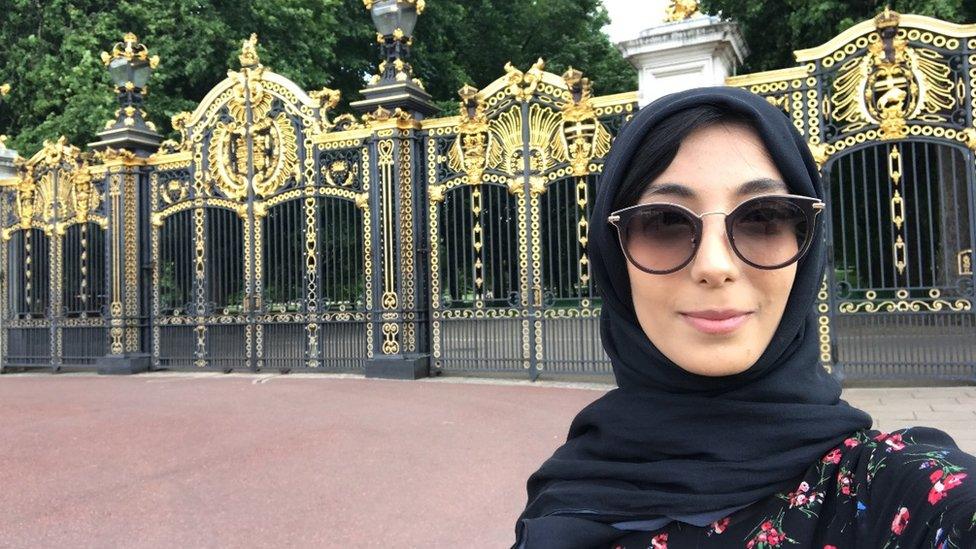
Fiddling distractedly with her headscarf and in words little louder than a whisper, Amar Al-Sadi tells me Malta has saved her from a life of bombs, rubble and deadly disease.
Her family escaped war-torn Yemen on a United Nations evacuation flight two years ago.
"I don't think anyone in the world would want to live that way," she said. "We were asleep one day and we heard a really big bomb nearby. It was really scary.
"I still have friends in Yemen. They tell me people are dying of cholera. Some of them do try to leave, but they can't because no-one will accept their passports now."
Amar is neither in Malta as a refugee, nor an economic migrant. The 21-year-old, her parents and four siblings are now all Maltese citizens.
They weren't born in Malta, and they didn't have any Maltese family. So how do they have Maltese passports?
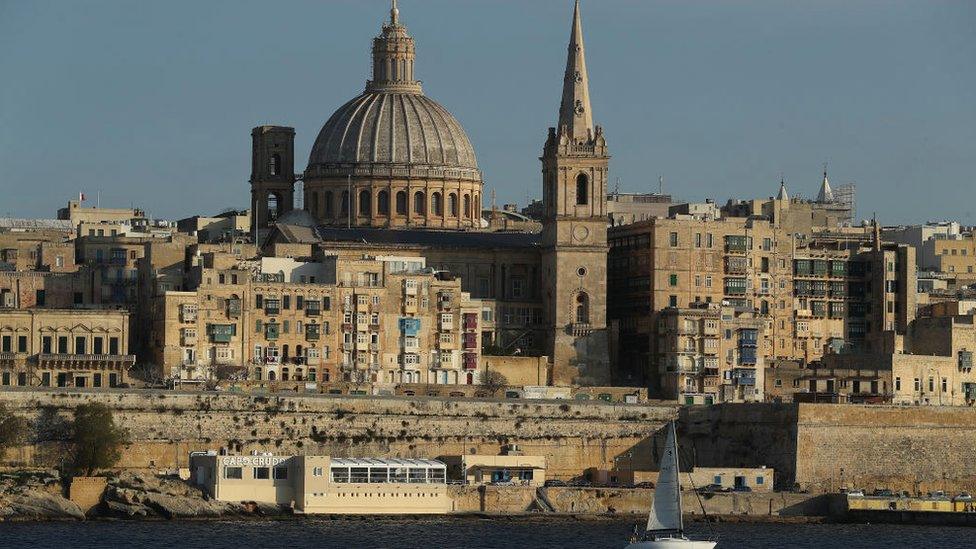
It costs at least 880,000 euros to buy a Maltese passport
They bought them, as have several thousand others in Malta since the country started selling passports in 2014.
Passport business
Unlike residency programmes or investor visas, which many countries (including the UK) offer to foreigners, Malta's Individual Investor Programme grants full citizenship to successful applicants.
It costs a minimum of 880,000 euros (£800,000; $1m), rising for each additional family member.
Three quarters of that is a non-refundable contribution to Malta's National Development and Social Fund, which finances education, health and job creation projects. The rest is split between investments in government bonds and owning or renting a home for at least five years.
For more, listen to Simon Tulett on BBC World Service's Business Daily programme
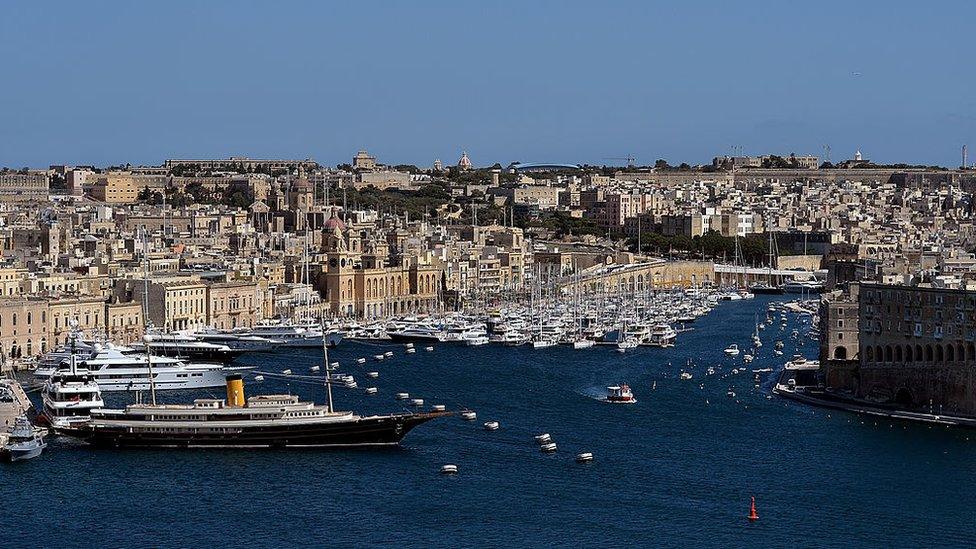
Malta is not the only country to sell passports
The Caribbean island of St Kitts and Nevis has been selling citizenship since 1984, but since 2011 Austria, Bulgaria, Hungary and Cyprus have all launched their own schemes.
"It's the insurance policy of the 21st Century," according to Christian Kaelin, the head of residency and citizenship planning firm, Henley and Partners.
He says there's been a "rapid expansion" in this area, partly fuelled by governments looking for new revenue sources, but also because of geopolitical unrest, for example in the Middle East.
Wealthy people can use such schemes as a way of escaping trouble or dramatic political change. But aside from security concerns, many simply want to offer opportunities to their children or make it easier to run a business.
"It's about mobility and personal flexibility, with access to other countries. We have a client who is an American but he has two important investments in Italy and the Netherlands," Mr Kaelin says.
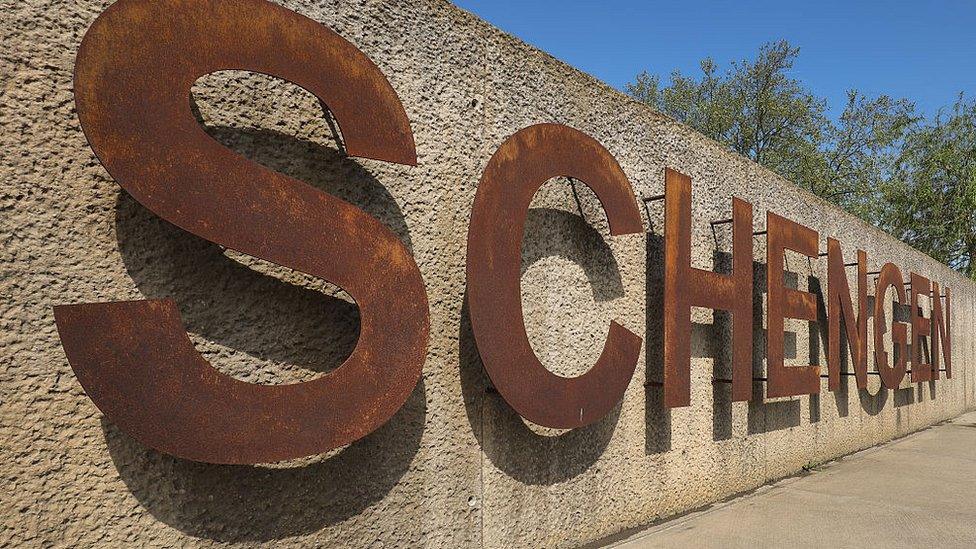
Malta is a member of the EU and the passport-free Schengen zone
"He needs a work permit in both. If he acquires citizenship in Malta, we don't need to deal with any work permit or other issues," says Mr Kaelin.
That's because Malta is in the European Union and part of its Schengen Area - enabling passport-free movement across most of EU. This is one of the scheme's strongest selling points.
Enquiries from the UK rose slightly after the Brexit vote, but no-one has yet signed up. "It's clear the UK will find some sort of arrangement with the EU," says Mr Kaelin.
"If a Brit comes to me and asks if they should buy a Maltese passport I'd say no forget it, just relax."
Malta's citizenship scheme is also popular because it's relatively cheap and quick. Applicants usually receive their passports within 12 to 18 months.
Property requirement
The programme requires applicants to either buy a property worth at least 350,000 euros, or rent one for at least 16,000 euros a year for five years.
More than 80% of applicants for passports take the rental option. However, there is increasing concern that many properties remain, leading some people in Malta to question applicants' intentions.
"These billionaires aren't interested in living in Malta, they just want access to the EU" says Maltese journalist Daphne Caruana Galizia. "They probably have no intention of ever setting foot here. If they were really interested in staying they would buy a home."
Malta's central bank has said the Individual Investor Programme is one of the factors pushing up house prices in Malta by some 7% each year, and rents by about 10%.
Jonathan Cardona, chief executive of Identity Malta, which runs the programme, agrees EU access is a key selling point for a Maltese passport but argues that the island is an attractive investment in its own right.
"I know one who has invested about 70m euros in Malta. Another one is in the process of opening a factory in the pharmaceutical industry, and I know of another who has opened an IT company.
"Some of them might not have invested seriously yet, but you can never tell what might happen in a few years' time."
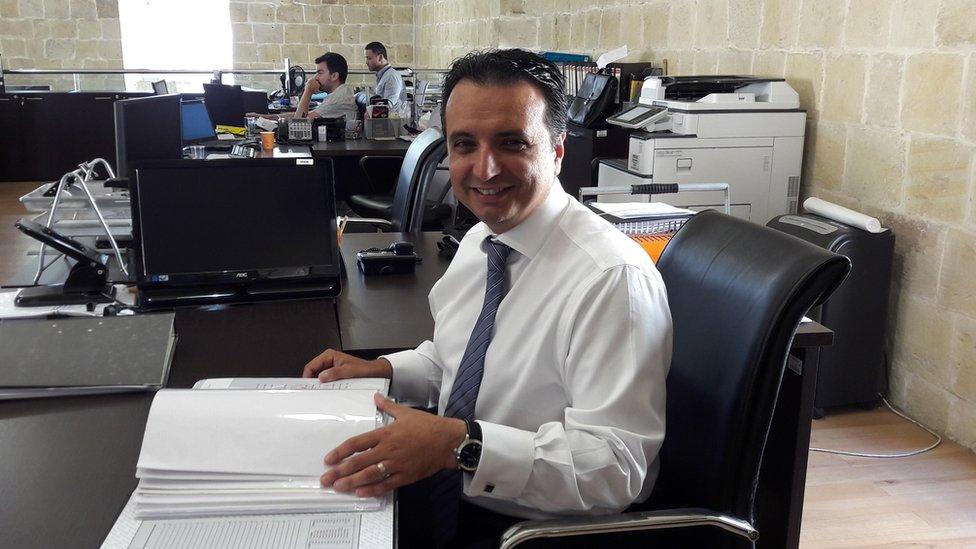
Malta's citizenship scheme makes a significant contribution to the economy, says Jonathan Cardona
Mr Cardona is keen to point out the financial significance of the donations applicants have made. These now total more than 220m euros and are worth about 2.5% of Malta's GDP.
"Because of their wealth and what they have done to achieve their status, they have quite a large footprint so we are able to do a lot of due diligence on them," he says.
"Other economic migrants, especially when they come without any documentation - we don't even know where they are coming from or the language they speak."
Citizenship debate
But for some, citizenship is about more than just numbers.
"A passport is something which should not be for sale, it's something you belong to, part of your DNA," says Helga Ellul, who was born in Germany but has lived in Malta for more than 40 years.
She moved to the island to run German toymaker Playmobil's operations there, employing more than 1,000 workers. She married, had two children and now has three grandchildren, and 15 years ago she applied for and was granted Maltese citizenship, without handing over hundreds of thousands of euros.
"It wasn't an easy decision for me to give up my German passport," she adds.
"When I took the decision it was because I really felt I belong to this country, that I would remain here. I have so many more friends here, I'm so recognised here, and part of this whole society, and I think if you would ask people in Malta I think they would all say I earned it."
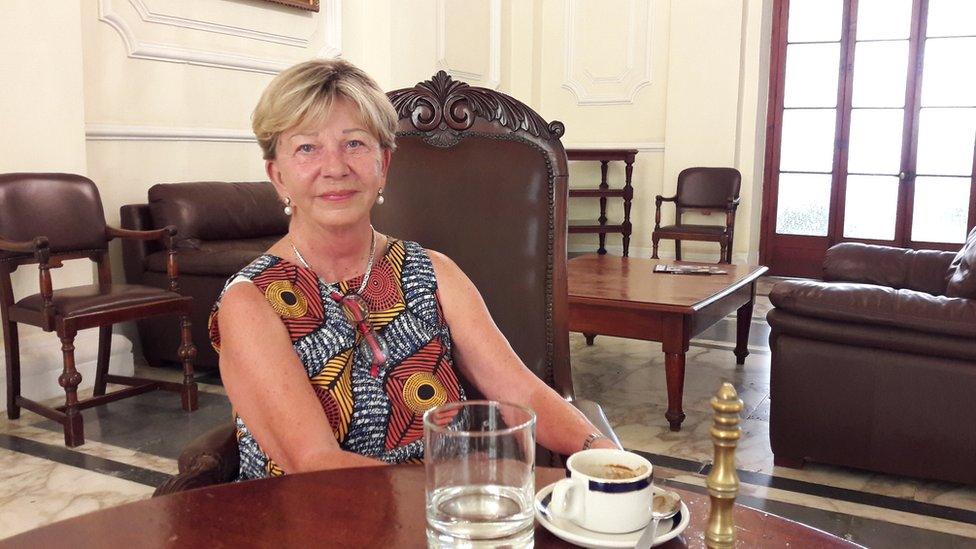
Helga Ellul gave up her German citizenship to become Maltese
But what right can any of us really claim to citizenship? After all, most of us acquire it through our parents, by chance.
Javier Hidalgo, a political theorist at the University of Richmond in Virginia, believes citizenship is always unearned and that there's often an inherent hypocrisy in a moral aversion to treating it as a commodity.
"If you're a sceptic about immigration restrictions, like me, then you'll be sceptical about selling citizenship, because you might think we're obligated to give people access to the country for free.
"But most countries and most people are quite happy to restrict immigration. If you think that's OK, then what's the problem with selling it?
"You're already in favour of excluding a lot of people. Why not make some money off of admitting some of them who you would otherwise be entitled to exclude?"

Global Trade
More from the BBC's series taking an international perspective on trade:
How to turn a hit TV show into an international success
Cars for cheese - why a free trade deal may not be free

Amar Al-Sadi and her family have bought and live in their Maltese home, and she is studying in the country along with her siblings.
She says they've immersed themselves in Maltese life and have been welcomed by their new neighbours, making plenty of friends.
"But I don't think everyone is as fortunate as we were, and that's really sad."